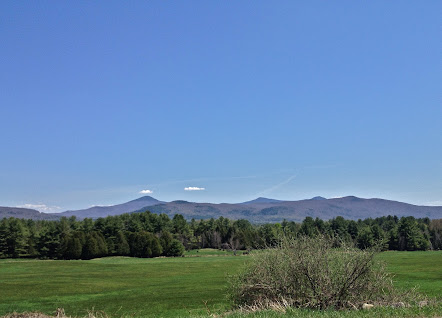September 25
The season of flowers may be considered as past now that the frosts have come. Fires have become comfort able. The evenings are pretty long.
2 P. M. To bathe in Hubbard's meadow, thence to ― Cliffs.
It is beautiful weather, the air wonderfully clear and all objects bright and distinct. The air is of crystal purity.
Both air and water are so transparent that the fisherman tries in vain to deceive the fish with his baits. Even our commonly muddy river looks clear to-day.
I find the water suddenly cold, and that the bathing days are over.
I find the water suddenly cold, and that the bathing days are over.
I see numerous butterflies still, yellow and small red, though not in fleets.
Examined the hornets ' nest near Hubbard's Grove , suspended from contiguous huckleberry bushes . . .
I watched the seeds of the milkweed rising higher and higher till lost in the sky . . . I brought home two of the pods which were already bursting open, and amused myself from day to day with releasing the seeds and watching [them] rise slowly into the heavens till they were lost to my eye. No doubt the greater or less rapidity with which they rose would serve as a natural barometer to test the condition of the air.
I watched the seeds of the milkweed rising higher and higher till lost in the sky . . . I brought home two of the pods which were already bursting open, and amused myself from day to day with releasing the seeds and watching [them] rise slowly into the heavens till they were lost to my eye. No doubt the greater or less rapidity with which they rose would serve as a natural barometer to test the condition of the air.
The hornets' nest not brown but gray, two shades, whitish and dark, alternating on the outer layers or the covering, giving it a waved appearance.
In these cooler, windier, crystal days the note of the jay sounds a little more native. Standing on the Cliffs, I see them flitting and screaming from pine to pine beneath, displaying their gaudy blue pinions.
Hawks, too, I perceive, sailing about in the clear air, looking white against the green pines, like the seeds of the milkweed. There is almost always a pair of hawks. Their shrill scream, that of the owls, and wolves are all related.
H. D. Thoreau, Journal, September 25, 1851
H. D. Thoreau, Journal, September 25, 1851
I see numerous butterflies still, yellow and small red, though not in fleets. See . July 15, 1854 ("There are many butterflies, yellow and red, about the Asclepias incarnata now"); July 16, 1851 ("I see the yellow butterflies now gathered in fleets in the road, and on the flowers of the milkweed . . .also the smaller butterfly, with reddish wing"); July 16, 1854 ("Many yellow butterflies and red on clover and yarrow."); . September 6, 1858 ("Solidago nemoralis . . . is swarming with butterflies, — yellow, small red, and large, — fluttering over it") A Book of the Seasons, by Henry Thoreau, The Small Red Butterfly
In these cooler, windier, crystal days the note of the jay sounds a little more native. See September 25, 1855 ("The scream of the jay is heard from the wood-side."); see also August 7, 1853 ("Do I not already hear the jays with more distinctness, as in the fall and winter?"); September 21, 1859 (" Jays are more frequently heard of late.");October 6, 1856 ("The jay's shrill note is more distinct of late about the edges of the woods, when so many birds have left us.") and A Book of the Seasons, by Henry Thoreau, The Blue Jay
The hornets' nest. See September 28, 1851 ("Here was a large hornets' nest . . .out came the whole swarm upon me lively enough. I do not know why they should linger longer than their fellows whom I saw the other day."); October 15, 1855 (“The hornets’ nests are exposed, the maples being bare, but the hornets are gone.”); October 24, 1858 ("That large hornets’ nest which I saw on the 4th is now deserted, and I bring it home. But in the evening, warmed by my fire, two or three come forth and crawl over it, and I make haste to throw it out the window.")
Hawks, too, I perceive, sailing about in the clear air,. . . There is almost always a pair of hawks. See September 16, 1852 ("What makes this such a day for hawks? There are eight or ten in sight from the Cliffs,") See also A Book of the Seasons, by Henry Thoreau, The hen-hawk


No comments:
Post a Comment